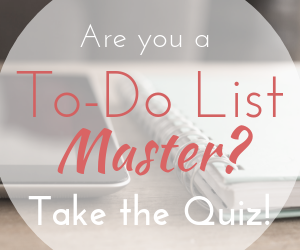I love sleep. A fact that my husband knows well since he gets up well before me most days (one of the many blessings of the entrepreneurial lifestyle is greater schedule control.) And, while a love of sleep has probably been with me since childhood, it wasn’t until the last 4-5 years that I recognized how crucial sleep was to my productivity and sense of well-being.
We all pulled all-nighters in high school and college finishing that paper or project, and it “worked” right? Sleep, puhshaw… who needs sleep! Most of us also slept in until noon every weekend we could while in college too, so I guess we did need some of it.
Here’s the deal… It’s well established (starting with studies in the 1880’s by Ernst Abbe at the Zeiss lens labs) that for about 40 hours a week we can be productive, but after than it’s diminishing returns with more mistakes and errors. Why do we make more mistakes? Because we get tired!
Now, I’m not a sleep researcher, I rely on the excellent work of others to study the effects of sleep deprivation on our productivity. But, I can offer my own experience and insights about what you can do to get more sleep and thus improve your productivity.
Learn how much Sleep your Body wants
According to the National Sleep Foundation, we operate best on 7-9 hours of sleep each night, but that’s a pretty wide range. The even greater problem is that most of us are getting closer to 6 hours. Therefore, there will probably be a period of “making up” for deprivation that needs to happen before you can get a real idea of how much sleep your body needs.
How do you find your magic number? Begin by going to sleep 15 minutes earlier than usual. Repeat that for a week or so, then back it up 15 minutes earlier again. What I discovered was that after getting over the sleep deprivation deficit, my body typically prefers closer to 9 hours of sleep. However, many others I know feel wonderfully refreshed around 7.5 hours. Get curious and find your magic number. Using my UP band gave me great data about my sleep to help find this number.
Make your Schedule Regular
Your body’s circadian rhythms adjust to patterns, and the more consistent you make the times when you go to sleep and wake up the easier it becomes. I’ve been surprised at how easily my body will wake up at 7:30am without an alarm. That’s because I aim to go to sleep 9 hours earlier. In general, if you can keep this consistency up through the weekends too it will become easier.
Create a Bedtime Ritual
I will be honest, this is one that I’ve struggled with at times. It’s just SO easy to get sucked into one more TV show or just a little more fussing around online. But, I’ve also felt the costs of those decisions. As my friend Lisa once said to me, “The battle for the morning is won or lost the night before.” I’ve definitely had those mornings that get lost or feel like a battle because of my poor decisions the night before. Similarly, I’ve noticed how much easier it is to get to sleep on time when I start my wind down ritual at least 30-60 minutes before. I continue to explore the perfect combination of activities to help me wind down most effectively: yoga, meditation, listening to an audiobook, needlepoint, taking a bath, etc. What seems universally true is: turn the screens off. Sleep comes much more easily when I’ve had at least 30 minutes of screen-free time before bed.
Make All-nighter Deadlines VERY Rare
While I definitely still have times when I’m up late preparing for a deadline, it’s maybe 2-3x per year. If this is still happening to you much more frequently, then it’s time for a new strategy to your task and energy management. It’s likely that either ineffective planning or procrastination are driving your decisions, and your sleep is being sacrificed. I plan to write more about the causes of procrastination in the future, but if this is happening to you in the meantime and you are ready to create a change… then reach out and ask for help.
Next Actions
If you’ve recognized yourself in some of these descriptions, then ask yourself “What can I do to give my body more sleep?” What’s one specific action you can start taking today to shift this issue in your life?
If you’ve been hearing your friends talk about these challenges, then make sure to share this article on social media so that they might find the resources they need to make a change.
Perhaps you’ve realized that you’re ready to address some major energy management struggles throughout your life… (sleep just as one example :)).
Then, you’ll want to download our Life Rhythm Map template and start the free Optimize Your Energy mini-course today.
This template will help you gain clarity about where your time is being spent, but even more it will help you consider the flow of your daily activities and how you might choose to shift them to improve both your personal energy and your life balance.



